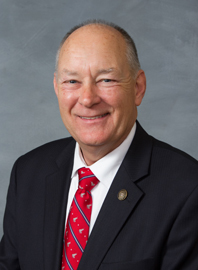RALEIGH, N.C. (Legal Newsline) - The North Carolina Commerce Protection Act of 2014, also known as Senate Bill 648, passed out of the state Senate on June 11 and was sent to the House, carrying with it a narrow asbestos reform amendment addressing successor liability thatprotects certain successor corporations from asbestos-related liabilities of the transferor.
The bill, which was introduced by senators Brent Jackson, Wesley Meredith and Jim Davis in April 2013, aims at making changes to the statutes governing commerce within the state, including laws regarding asbestos and Food and Drug Administration product liability actions.
However, the proposed substitute amendment seeking asbestos bankruptcy trust transparency was not included in the final approved bill.
The proposed amendment was similar to bankruptcy trust transparency laws enacted in Ohio, Oklahoma and, most recently, Wisconsin.
If the transparency section hadn't been killed, it would have promoted transparency within the trusts. The bill would have required plaintiffs in a lawsuit to file a sworn statement with a court identifying all claims and potential claims against asbestos bankruptcy trusts.
The proposed amendment was dropped when the Senate Judiciary Committee considered the bill. Sen. Fletcher L. Hartsell, Jr., offered an amendment to remove the trust transparency section as well as a section that would have provided defense for FDA-approved products.
Hartsell's amendment was adopted by voice vote and the amended bill was then passed out of the committee by voice vote, as well.
However, Hartsell's amendment kept the trust transparency issue alive by offering to send the issue for study during the interim when the Legislature is not in session, which will help keep the issue on the agenda in the event the House does not offer a transparency reform amendment in their proposed bill.
That means, an additional hearing on the subject and several others Hartsell mentioned to be included in the study, is expected to be held in the fall.
By the time the bill reached the Senate floor, it only contained the provision relating to transparency in contracts between the state attorney general and private attorneys when hiring outside contingency fee counsel - which is called the "Transparency in Private Attorney Contracts Act," or TiPAC reform - as well as patent troll reform.
"A state agency may not enter into a contingency fee contract with a private attorney unless the Attorney General makes a written determination prior to entering into the contract that contingency fee representation is both cost-effective and in the public interest," the approved bill states.
As for patent troll reform, the bill introduces the "Abusive Patent Assertions Act," which holds that it is unlawful to make bad-faith assertions of patent infringement.
"The General Assembly seeks, by this narrowly tailored act, to strike a balance between the interests of efficient and prompt resolution of patent infringement claims, protection of North Carolina businesses from abusive and bad-faith assertions of patent infringement, and building of North Carolina's economy and the intentions to respect federal law and be careful to not interfere with legitimate patent enforcement actions," the bill states.
The Senate later adopted a narrow asbestos reform amendment limiting certain successor liability for asbestos-related cases while on the Senate floor, which has been adopted in almost half of the states.
"[T]he cumulative successor asbestos-related liabilities of a successor corporation are limited to the fair market value of the total gross assets of the transferor determined as of the time of the merger or consolidation. The successor corporation does not have responsibility for successor asbestos-related liabilities in excess of this limitation," the adopted amendment states.
The successor liability protection does not apply to most workers' compensation benefits, claims that do not constitute a successor asbestos-related liability, obligations under the National Labor Relations Act and successors that continued in the business of mining, selling, distributing or manufacturing asbestos after the merger.
While on the Senate floor, amendments were also adopted to strengthen the TiPAC section and to reinstate the Food and Drug Administration defense section that had been removed by Hartsell's amendment.
Relating to product liability actions for FDA cases, the bill states that drug manufacturers presumably did not fail to provide adequate warning if the drug and its labeling complied with FDA regulations when it left the control of the manufacturer.
After passing in the Senate, the bill was sent to the House.
On Wednesday, the House Judiciary Committee introduced its own amended bill with just the TiPAC section, which was passed out of the committee.
The House bill heads to the House floor where it could either be passed or subject to amendment. If passed, the bill would go to the Senate, which would either have to concur with the House version or go to a conference so the two chambers can compromise.
From Legal Newsline: Reach Heather Isringhausen Gvillo at asbestos@legalnewsline.com
N.C. Bill 648 passes Senate without proposed bankruptcy transparency amendment
